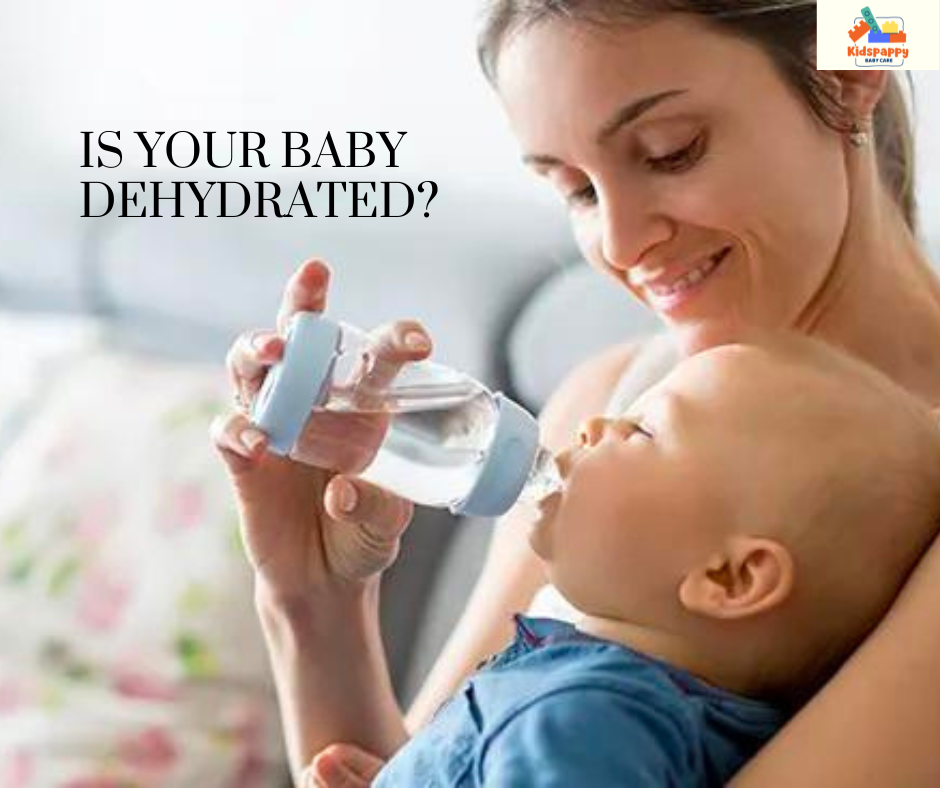As a parent, you want to do everything possible to keep your baby healthy. Even so, babies and toddlers do get sick from time to time, and with certain symptoms of illness like fever or vomiting, there’s a chance that your baby or toddler can get dehydrated.
Our bodies need water and other fluids to function properly—that goes for babies, children, and adults, too. Over the course of a day, it’s normal for your baby to lose and replenish water. When he sweats, cries, pees, or poops, he loses water, and when he feeds, eats, or drinks, he replenishes it.

Signs of dehydration in babies include:
- sunken soft spot on the top of the head
- sleeping too much (more than normal for even a baby!)
- sunken eyes
- crying with little or no tears
- fussiness
- cold or discoloured hands and feet
- wrinkly skin
Signs of dehydration in babies and toddlers include:
- doesn’t feel like playing
- tired or cranky
- a dry diaper for 8 hours or longer
- sunken eyes
- crying with few or no tears
- a dry mouth
- constipation or hard or fewer bowel movements (if the dehydration is from not drinking enough water)
- cold hands
- fast breathing
- fast heart rate
Home remedies for dehydration in babies:
- Carefully follow the doctor’s instructions for feeding.
- Do not give children under age 2 over-the-counter medicine for diarrhea, unless instructed by your doctor.
- Encourage your child to drink fluids that are unsweetened (sugary sodas, juices and flavoured gelatine can irritate diarrhea).
- Continue to breastfeed infants normally.
- Electrolyte solutions may be helpful when given as recommended by the doctor.
- Slowly increase the amount of fluid and food you give your child.
- Give your child acetaminophen (Tylenol®) for fever. Do not give your child aspirin.
- Allow your child plenty of rest.
- Watch for signs of dehydration that get worse or come back.
Babies and toddlers can sometimes get a little dehydrated because of their small size. This can happen when they lose water too quickly from vomiting or diarrhea. Dehydration can also happen when babies aren’t getting enough liquids through normal feeding.
Serious dehydration can happen quickly and is dangerous for babies and toddlers. Call your doctor right away if your baby has a high fever or if they have any symptoms of dehydration.
For more great articles about childhood development, baby names and baby care, bookmark kidspappy now!
